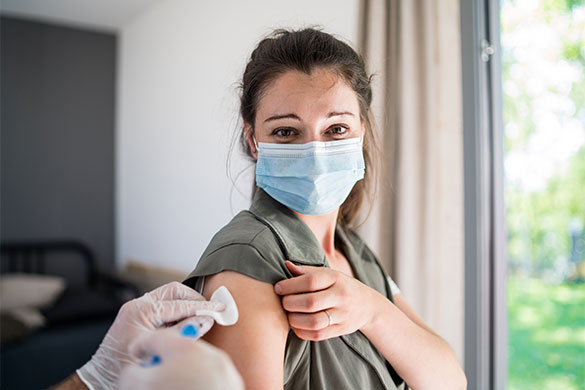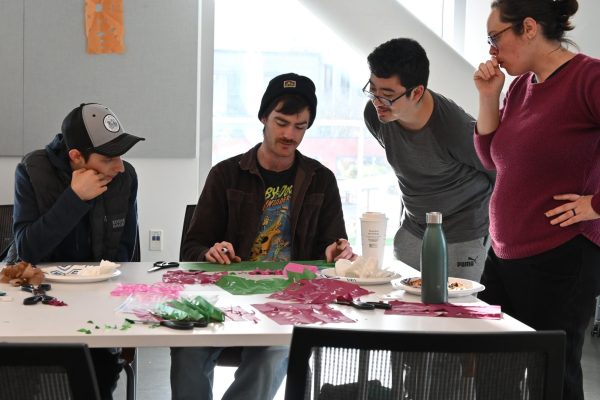What You Need To Know About The COVID-19 Vaccine

Halfpoint Images
California has vaccinated more than 3.9 million people since the state started administering the COVID-19 vaccine on Dec. 14, 2020. A global virus like COVID-19, paired with controversy already surrounding vaccinations in America, has pushed a lot of skepticism to the forefront of people’s minds.
The roll out of vaccines vary from state to state. California is currently in Phase 1B that allows residents older than 65, those working in education and childcare, emergency workers, and those working in food and agriculture to be vaccinated.
Aydin Golabi is a robotics and automation engineer on the research and development team at Color, a biotech company that has been a big contributor in COVID-19 testing in the Bay Area.
“I was really upset when the shutdown happened so I resolved I would only work on something COVID related, whether it be testing, vaccine stuff, whatever it was, I just wanted to do something.” Golabi said in an interview.
Most American still have a sense of doubt when it comes to the COVID-19 vaccine, but some of the concerns can be answered in a logical way. Here are some of the commonly asked questions surrounding the COVID-19 vaccine.
The first COVID-19 case was reported in Wuhan, China on Dec. 31, 2019. How were scientists able to create a vaccine in only a year?
COVID-19 is the second variant of the Severe Acute Respiratory Syndrome (SARS), formally named SARS-CoV-2. According to the Centers for Disease Control (CDC), SARS was first discovered in Asia in 2003. After a mild outbreak that reached over two dozen countries in Asia, Europe, North America, and South America, the virus was contained later that year. However, scientists knew that this virus would eventually return as a new variance.
“Essentially, scientists already developed a vaccine ahead of time by studying SARS. All they needed was the RNA sequence of the new variant to input into their vaccine cocktail,” Golabi said in an interview.
Golabi claims when the World Health Organization (WHO) announced a new coronavirus, scientists already knew they would have a vaccine ready within a month.
“The reason the vaccine happened so quickly is because all the work that went into it had already happened ahead of time. Once they had their sequence they were able to start pushing it to get through the FDA.” Golabi said in a statement.
Is the COVID-19 vaccine safe?
“This is the first type of vaccine that is mRNA based and because of that there is no chance of getting coronavirus from it.” Golabi said in an interview.
The way vaccines work in order to prompt an immune response is by injecting dead or weakened versions of virus cells into our bodies. The Pfizer and Moderna COVID-19 vaccines are utilizing advanced, cutting edge science and technology that is only available with the type of computers we have today because it doesn’t involve injecting any virus cells into your body.
“Even if the vaccine doesn’t work and doesn’t protect you from COVID-19, it’s not going to hurt you because you’re not putting actual COVID-19 virus cells in you. So yes, I would say it’s safe for you to get vaccinated,” Golabli said in an interview.
Although the CDC is confident the COVID-19 will keep you from getting sick, scientists are still unsure how well the vaccine prevents you from spreading the virus to other people. For this reason, the CDC still recommends people who are vaccinated to continue to follow social distancing guidelines and wear a face covering when in public.
What exactly does an mRNA vaccine mean?
Unlike the vaccines we’re used to, an mRNA vaccine doesn’t include any actual virus cells. An mRNA vaccine instead provides a genetic code that instructs your body to start making antibodies on its own.
The CDC explains that “the COVID-19 mRNA vaccines give instructions for our cells to make a harmless piece of what is called the “spike protein.” The spike protein is found on the surface of the virus that causes COVID-19.”
This is a new, revolutionary way of thinking about vaccines and the technology will likely be utilized in the future.







